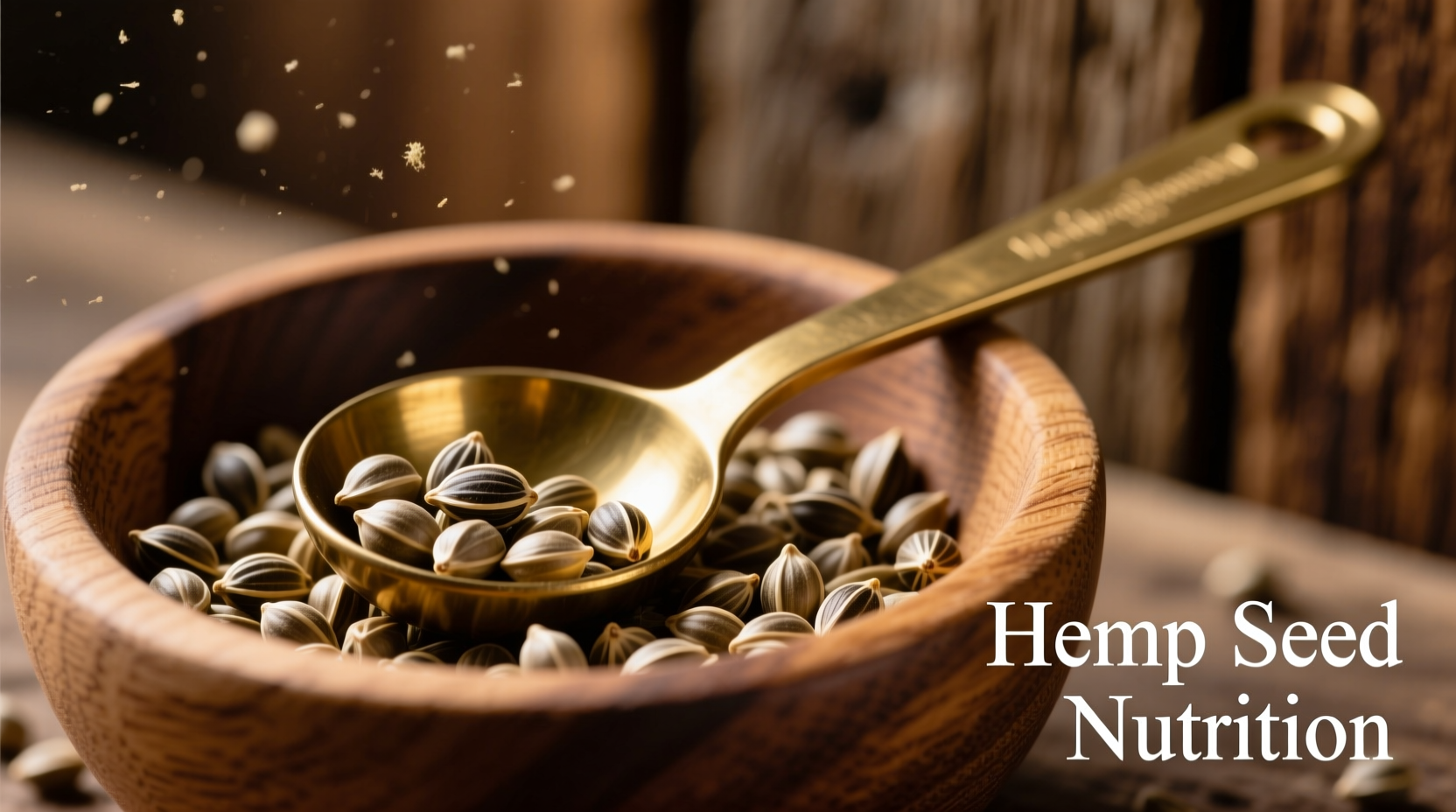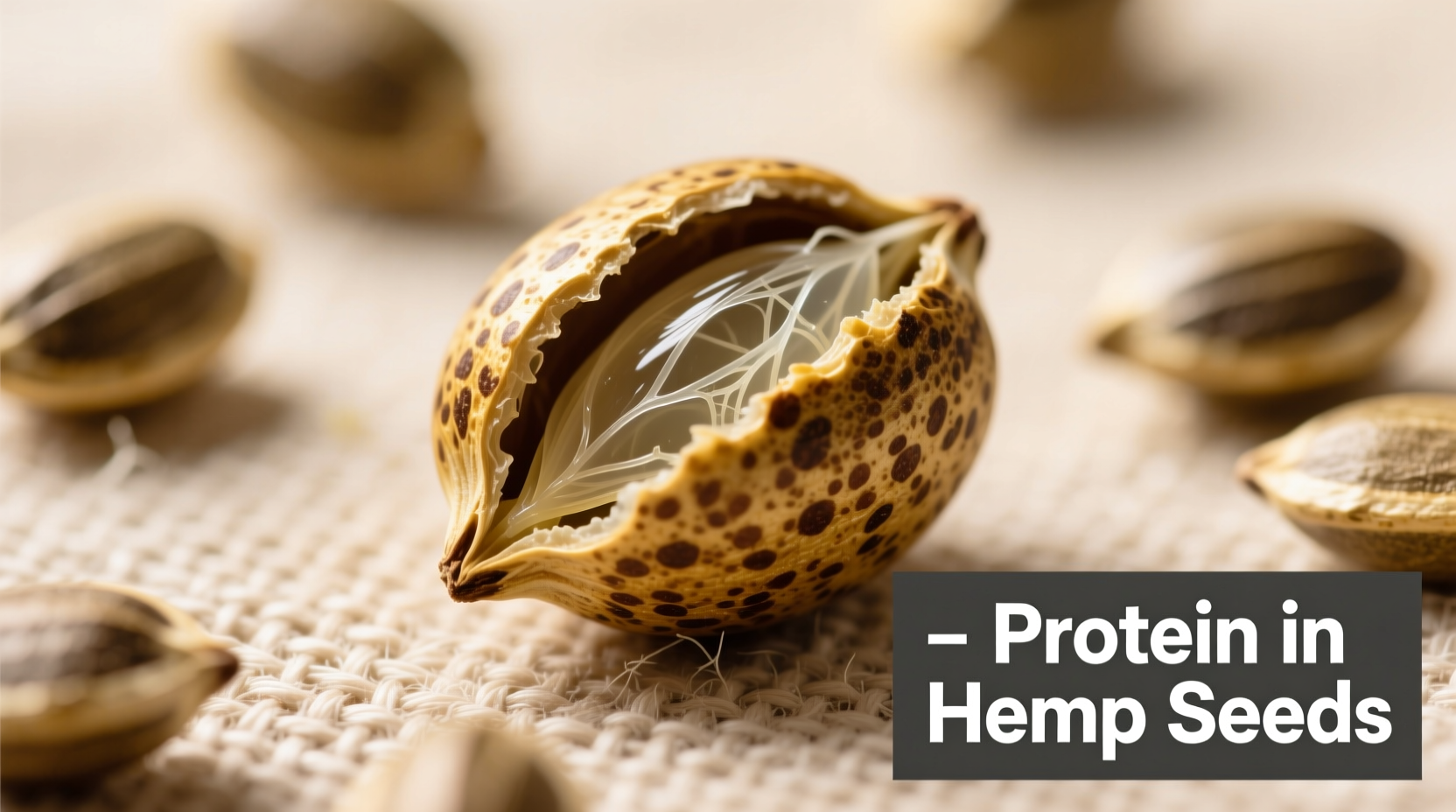Why Hemp Seeds Are Protein Powerhouses
When you're searching for natural plant-based protein sources that don't require animal products, hemp seeds stand out as a nutritional marvel. Unlike most plant proteins that lack one or more essential amino acids, hemp seeds provide a complete protein profile similar to eggs and meat. The protein in hemp seeds primarily consists of edestin (65%) and albumin (35%), two highly digestible globular proteins that your body can readily absorb and utilize.
According to USDA FoodData Central, a standard 30-gram serving (about 3 tablespoons) of raw hemp seeds contains:
| Nutrient | Amount per 30g | % Daily Value |
|---|---|---|
| Protein | 9.47g | 19% |
| Dietary Fiber | 2.6g | 9% |
| Omega-3 Fatty Acids | 2.6g | 163% |
| Magnesium | 210mg | 50% |
How Hemp Protein Compares to Other Sources
Understanding how hemp seed protein stacks up against common alternatives helps you make informed dietary choices. While soy and quinoa are also complete plant proteins, hemp offers distinct advantages in digestibility and nutrient synergy:
| Protein Source | Protein per 30g | Complete Protein? | Digestibility | Key Advantages |
|---|---|---|---|---|
| Hemp Seeds | 9.5g | Yes | 86-98% | Rich in omega-3s, magnesium, fiber |
| Chia Seeds | 4.7g | No | 60-70% | High in calcium, omega-3s |
| Quinoa | 4.4g | Yes | 75-85% | Contains iron, B vitamins |
| Soybeans | 10.7g | Yes | 95% | High in isoflavones, calcium |
Research published in the Journal of Agricultural and Food Chemistry confirms hemp protein's superior digestibility compared to many plant alternatives. Unlike soy, hemp protein doesn't contain trypsin inhibitors that can interfere with protein absorption, making it gentler on your digestive system while delivering maximum nutritional benefit.

Health Benefits Backed by Science
The complete amino acid profile of hemp seeds supports multiple health benefits that extend beyond basic protein needs. Arginine, which makes up 12% of hemp protein, converts to nitric oxide in your body—a compound that improves blood flow and cardiovascular health. Studies from the University of Manitoba have shown regular hemp seed consumption can reduce inflammation markers by up to 20% in as little as four weeks.
For athletes and active individuals seeking natural muscle recovery without processed supplements, hemp seeds provide the branched-chain amino acids (leucine, isoleucine, valine) necessary for muscle repair. The European Journal of Clinical Nutrition reported that plant-based protein sources with high digestibility like hemp can support muscle synthesis nearly as effectively as whey protein when consumed in adequate amounts.
Practical Ways to Maximize Hemp Seed Benefits
Incorporating hemp seeds into your daily routine requires minimal effort but delivers maximum protein impact. Unlike many protein sources that need cooking or processing, raw hemp seeds preserve their complete nutritional profile when added directly to foods:
- Morning boost: Stir 2 tablespoons into oatmeal or yogurt (adds 6g protein)
- Smoothie secret: Blend 3 tablespoons into fruit smoothies (adds 9g protein)
- Salad upgrade: Sprinkle over greens instead of croutons (adds crunch and protein)
- Baking enhancer: Replace 25% of flour with hemp seed powder in muffins
For optimal nutrient retention, store hemp seeds in an airtight container in the refrigerator. Their high fat content makes them susceptible to oxidation at room temperature, which can diminish both flavor and nutritional value over time.
Understanding Limitations and Considerations
While hemp seeds offer exceptional protein quality, they work best as part of a varied plant-based protein strategy rather than your sole source. Each 30g serving contains approximately 166 calories, so portion control matters if you're managing calorie intake. The National Institutes of Health notes that hemp seeds naturally contain negligible THC (less than 0.3%), making them completely non-psychoactive and legal in most countries.
People with sensitive digestive systems should start with smaller portions (1-2 tablespoons daily) to assess tolerance, as the high fiber content may cause temporary bloating. Those with hemp allergies (rare but possible) should avoid consumption entirely. For individuals managing kidney disease, consult your healthcare provider about appropriate protein intake levels before significantly increasing plant-based protein sources.
Your Hemp Protein Questions Answered
Understanding common concerns about hemp seed protein helps you make informed choices about incorporating this superfood into your diet:
Do hemp seeds contain enough protein for muscle building?
Yes, hemp seeds provide 9.5g of complete protein per 30g serving with excellent digestibility (86-98%). While slightly lower in leucine than whey protein, consuming adequate portions (30-40g) throughout the day supports muscle synthesis effectively, especially when combined with other plant proteins.
How does hemp protein compare to protein powder supplements?
Whole hemp seeds offer complete nutrition beyond just protein, including fiber, healthy fats, and minerals that most protein powders lack. While concentrates provide higher protein density, raw seeds deliver a more balanced nutritional profile without processing. For most people, whole seeds provide superior overall nutrition.
Can I eat hemp seeds every day?
Yes, consuming 2-3 tablespoons daily is generally safe and beneficial. The FDA considers hemp seeds GRAS (Generally Recognized As Safe). Their balanced omega-3 to omega-6 ratio (1:3) supports long-term consumption without inflammatory concerns associated with imbalanced fatty acid intake.
Do hemp seeds need to be cooked to access their protein?
No, hemp seeds provide maximum nutritional benefit when consumed raw. Cooking above 170°F (77°C) can degrade heat-sensitive nutrients and alter protein structure. Unlike beans or grains, hemp seeds require no preparation to access their complete protein profile and high digestibility.











 浙公网安备
33010002000092号
浙公网安备
33010002000092号 浙B2-20120091-4
浙B2-20120091-4